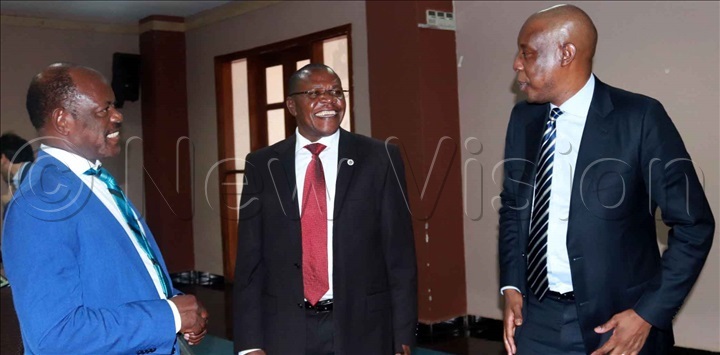Ugandans trained in interpreting satellite images
The training is part of the efforts to prepare Uganda to acquire its own satellite and also manage the space science.
SCIENCE & TECHNOLOGY
The United Nations Technology Bank for the Least Developed Countries (UNteck) has started training Ugandans on how to analyze and interpret satellite images to enhance quick response to disasters.
The training is part of the efforts to prepare Uganda to acquire its own satellite and also manage the space science.
UNteck is a new global body that became operational in 2018 serving 47 least developed countries (LDCs) with enhancing the contribution of science, technology and innovation for sustainable development
According to Joshua Setipa, the Managing Director UNteck, LDCs are highly vulnerable to economic and environmental shocks and have low levels of human assets.
Speaking during a consultative meeting, Setipa said that Uganda was mandated to benefit through building capacity of its technocrats in science technology and innovation.
"We came to Uganda to build capacity of Ugandans to be able to interpret and analyze satellite images of natural disasters like landslides," Setipa said.
He elucidated that Satellite data will help Uganda to identify disaster areas and ably interpret the image size of displacement.
"Our training is to build capacity in interpretation of geospatial data to be able to interpret satellite images primarily around disaster management and climate change," he said.

He observed that the training was coming at the time when countries like Uganda are prone to natural disasters much frequently than in the past due to climate change, citing the natural phenomena like locusts and mudslides due to heavy rains.
The Senior Programme specialist for the United Nations Institute for Training and Research (UNitar) at the Satellite Analysis and Applied Research, Luca Dell'oro said the training was based on the key studies that happen in Uganda concerning issues like floods, drought and mudslides.
"We want the participants to use outputs like maps showing the different imparts of disasters to discuss which new innovations, technology, new trends and other initiatives are happening into the country," he said.
The training was conducted in collaboration with the Ministry of Science Technology and Innovations (MoSTI) and aimed at building knowledge to develop a multi-disciplinary approach to disasters.
Prof Bernabas Nawangwe, the Vice chancellor Makerere University, said that such training re-equips the technocrats with modern skills of the immerging skills and knowledge such that they are up to date.
"This means that when they are handling any issue, they are not constrained with lack of knowledge of the kind of technology their partners around the world are using," Nawangwe said.
He added that Makerere being an academic institution has an obligation to contribute to its country through coming up with programs which are beneficial to the country and the new generation.
The Director Science and Innovation at the MoSTI, Maxwell Otim said the training was very fundamental to countries like Uganda.
"Focusing on space is very fundamental, the level of carbon dioxide covering our space causes the earth to react, yet the capacity to manage space science and technology has been extremely limited," said Otim.